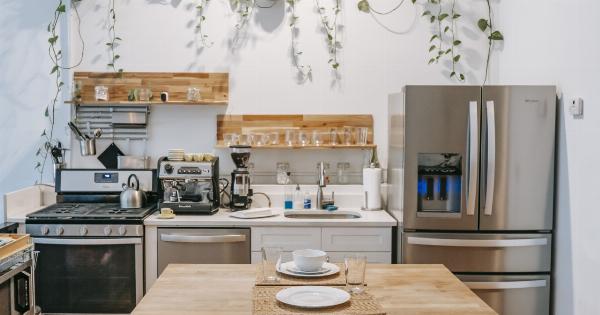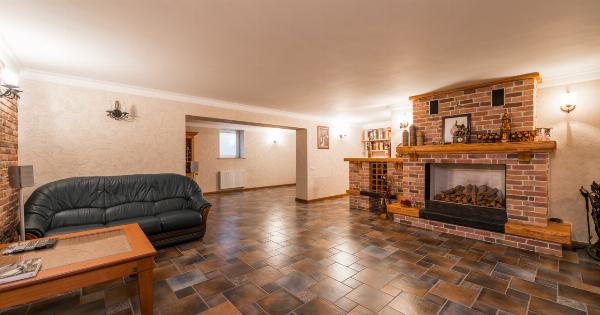Winter can be a challenging time of year when it comes to keeping your home warm and comfortable. Unfortunately, heating issues can occur at any time, leaving you scrambling to find solutions to restore warmth to your home.
In this article, we will explore some of the most common heating issues and their symptoms, as well as provide helpful solutions to get your heat up and running again.
Clogged Air Filters
Clogged air filters are one of the most common issues that can affect your heating system. Over time, air filters can become clogged with dust, pet hair, and other debris, making it difficult for air to circulate properly throughout your home.
If you notice that your home is taking longer to warm up or that your energy bills have increased, it may be a sign that your air filters are clogged.
The solution to this problem is relatively simple – replace your air filters regularly. Most experts recommend changing your air filters every 1-3 months, depending on usage.
If you have pets or someone in your home has allergies, you may need to change your filters more frequently.
Thermostat Malfunctions
Your thermostat is the control center of your heating system, regulating the temperature and allowing you to adjust the heat as needed. If your thermostat malfunctions, it can cause your heating system to fail or even shut down completely.
Symptoms of a malfunctioning thermostat can include temperature fluctuations, inaccurate readings, and unresponsive controls.
If you suspect that your thermostat is the culprit behind your heating issues, there are a few things you can try before calling in a professional:.
- Replace the batteries in your thermostat. Sometimes, a dying battery can cause your thermostat to malfunction.
- Check the wiring. Loose or damaged wires can also lead to thermostat issues.
- Reset your thermostat. Sometimes, a simple reset can fix minor malfunctions.
If none of these solutions work, you may need to call in a professional to repair or replace your thermostat.
Heating System Breakdowns
If your heating system breaks down completely, you may be left without heat during the coldest months of the year. This can be a serious issue, especially for older adults or individuals with health conditions.
Some common reasons for heating system breakdowns include:.
- Age. As your heating system ages, it becomes more prone to breakdowns and malfunctions.
- Lack of maintenance. Failing to perform regular maintenance, such as cleaning and inspection, can cause your heating system to break down.
- Overuse. In severely cold climates, your heating system may be working overtime to keep up with demand, which can cause it to wear down more quickly.
If your heating system breaks down, you will likely need to call in a professional to perform repairs or replacement. It is important to have your heating system inspected and maintained regularly to prevent breakdowns and extend its lifespan.
Uneven Heating
If some rooms in your home are warmer than others, you may be dealing with uneven heating. This can be caused by a variety of factors, including blocked vents, leaks in ductwork, or improper insulation.
To fix uneven heating, you may need to take the following steps:.
- Check your air vents for blockages. Ensure that the vents are open and unobstructed.
- Inspect your ductwork for leaks. Leaking ducts can cause warm air to escape before it reaches its intended destination.
- Upgrade your insulation. Insufficient insulation can cause heat loss and uneven heating, particularly in older homes.
If you have tried these solutions and are still experiencing uneven heating, you may need to call in a professional HVAC technician to inspect and diagnose the problem.
Noisy Heating System
If your heating system is making loud or unusual noises, it may be a sign of a more serious issue. Some common causes of noisy heating systems include:.
- Loose or damaged parts. If your heating system is making rattling or banging noises, it could be due to loose or damaged parts.
- Ductwork issues. If your ductwork is poorly designed or installed, it can cause whistling, clanking, or banging noises.
- Buildup of debris. If debris, such as leaves or twigs, become trapped in your heating system, it can cause unusual noises.
To fix a noisy heating system, you will likely need to call in a professional HVAC technician. They will be able to diagnose the problem and perform any necessary repairs or replacements.
Inefficient Heating
If your heating system is running constantly or your energy bills have skyrocketed, it may be a sign that your system is inefficient. Some common causes of inefficient heating can include:.
- Dirty air filters or vents. Clogged filters or vents can cause your heating system to work harder to circulate air, leading to inefficiency.
- Old or outdated equipment. If your heating system is outdated or not properly sized for your home, it may be struggling to keep up with demand.
- Lack of maintenance. Failing to perform regular maintenance, such as cleaning and inspection, can cause your heating system to become inefficient.
To improve the efficiency of your heating system, you may need to perform regular maintenance, replace outdated equipment, or adjust your thermostat settings. An HVAC professional can help diagnose and fix efficiency issues with your heating system.
Carbon Monoxide Leaks
Carbon monoxide (CO) is a colorless, odorless gas that is toxic to humans and pets. If your heating system is malfunctioning or poorly maintained, it can produce dangerous levels of CO, putting your household at risk.
Symptoms of CO poisoning include headache, dizziness, nausea, and confusion.
To prevent CO leaks, it is important to have your heating system inspected and maintained regularly by a professional HVAC technician.
You should also ensure that you have working CO detectors in your home and that they are installed near sleeping areas. If your CO detector goes off, evacuate your home immediately and contact emergency services.
Conclusion
Dealing with heating issues can be frustrating and stressful, especially during the colder months of the year.
However, by knowing the symptoms and solutions of common heating issues, you can take steps to prevent breakdowns and keep your home warm and comfortable. Be sure to perform regular maintenance on your heating system and call in a professional if you suspect any issues or malfunctions.






























